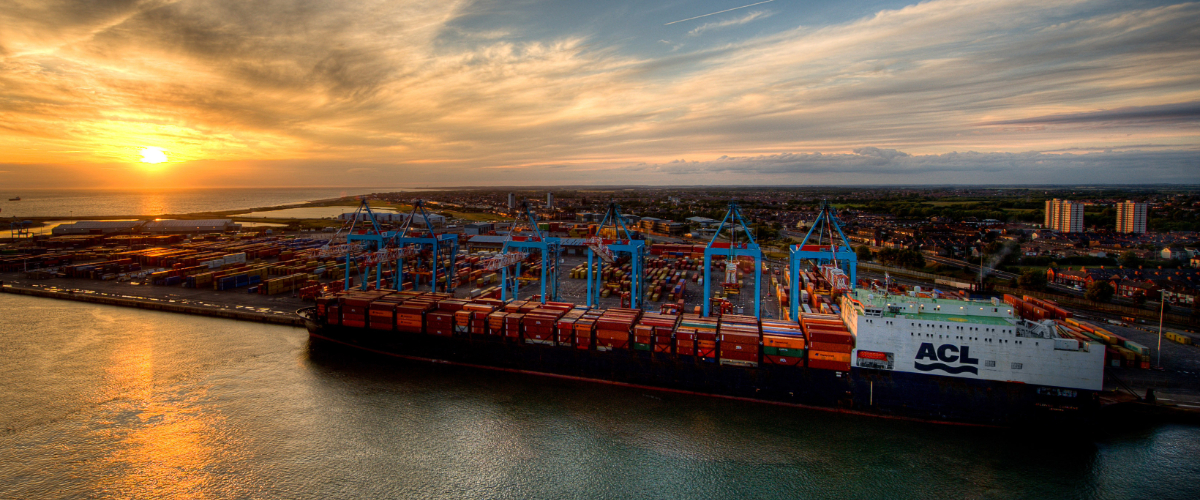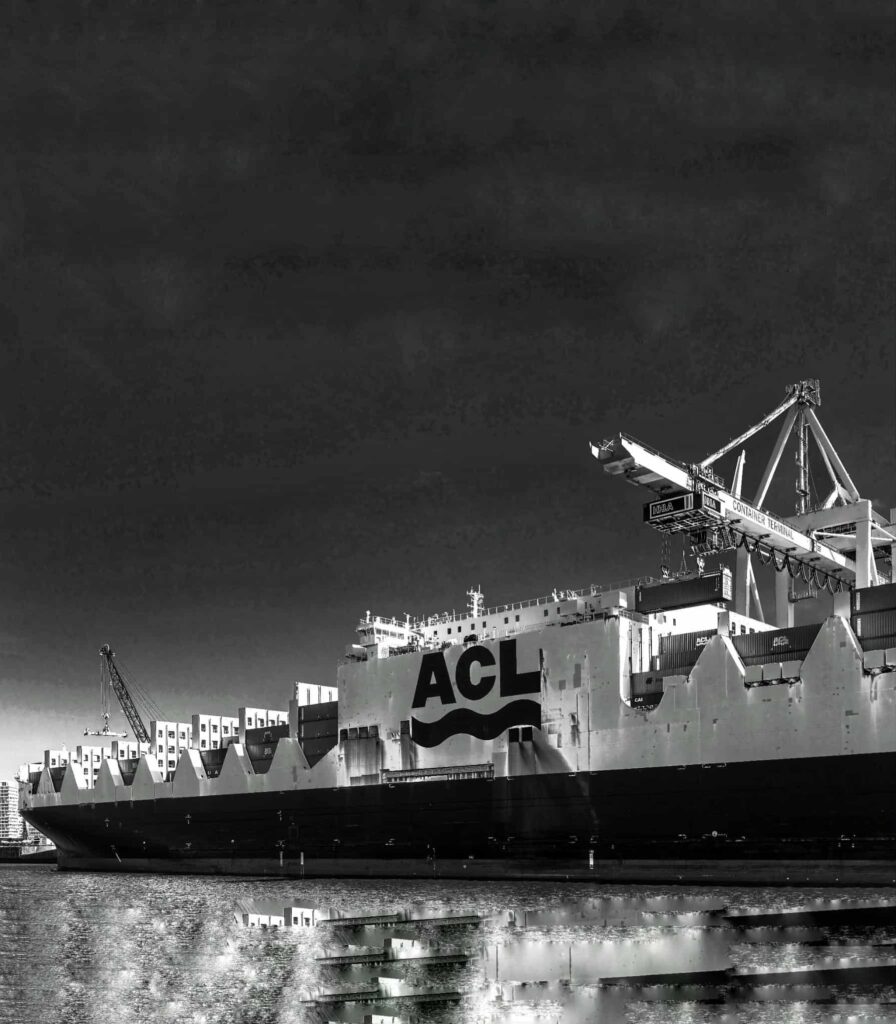“If the measures recommended by the US Trade Representative were implemented, within 24 hours we would lose all competitive capacity in favor of competitors, including Chinese ones”
Atlantic Container Line ACL, the New Jersey-based container shipping company controlled by the Grimaldi Group of Naples, would have to abandon its business – focused on traffic between Northern Europe and the United States of America – if the US Trade Representative (USTR) were to implement the anti-China measures outlined in recent weeks.
The US press reports this, citing the report presented by CEO Andrew Abbott, as part of the consultations launched by USTR on the measures in question.
The ACL A service uses five Con-Ro ships
The ACL A service uses five 3,800 TEU con-ro ships, capable of transporting containers and RO RO cargo, all built in China between 2015 and 2016, on a port rotation between New York, Baltimore, Norfolk, New York, Halifax, Liverpool, Antwerp, Hamburg, connected via feeder also with Gothenburg, Belfast and Dublin
Terminate its service to the United States
According to Abbott, ACL would be forced to “terminate its service to the United States, close its U.S. offices, lay off its U.S. personnel and redeploy its vessels to non-U.S. trades because the proposed action would make us totally noncompetitive with other carriers in the U.S. trades.”
Related : Grimaldi’s Grande Brasile set on fire en route to Aliaga (Türkiye)

US shipyards had no slots available for a minimum of seven years
The manager also noted that “13 years ago, when the company was selecting a shipyard to build its next-generation ships, Japanese shipyards refused to even bid for the five-ship order, Korean shipyards said they could not get economies of scale from it because of the unique design of the ships, and US shipyards had no slots available for a minimum of seven years, as the US Navy had booked the capacity. Chinese shipyards were not in the dominant position they are today.
ABS and RINA
They told us they were ready to build our complex ship design right away at a very competitive price. Although we had our concerns about quality, we had no viable alternatives. Both the American Bureau of Shipping ABS and Italy’s Rina supervised the construction of the ships in Shanghai.”
The numbers reported in the document presented by ACL are eloquent: the transport rate of 500 dollars for a 40-foot container from North America to Northern Europe would increase overnight by 500% and that of 2,500 dollars for a 40-foot container from Europe to North America would grow by at least 80% if the measures were implemented.
Related : Grimaldi inaugurates the first river-sea line from China to Africa
A company like ACL would be forced out of the U.S. trade by this proposed action, while our competitors (including Chinese carriers) would capture our container cargo and American oversized cargo producers would lose their primary carrier.”
As a result, ACL has developed a very loyal customer base in the United States with companies we have worked with for over 50 years. Today, ACL transports more than half of the American construction, agricultural and large equipment that moves from our ports in New York, Baltimore and Norfolk to Europe,”
ACL’s stance is not alone.
The International Chamber of Shipping ICS, which represents more than 80% of the global merchant fleet, warns that the proposed tariffs could seriously disrupt U.S. trade and raise consumer prices. Current data shows that China builds 61% of the world’s new merchant ships, with the proposed tariffs potentially affecting 98% of container ships calling at U.S. ports
The Chamber of Shipping of America points out that the United States’ shipbuilding capabilities are currently insufficient, citing decades of decline in the industry. This limitation is further highlighted by ICS data showing that U.S.-built ships cost four times more than foreign-built vessels, with delivery times exceeding 10 years for specialized vessels.
Bimco and local US transport associations, including those most interested in short-haul, have also shown concern about the possible inflationary effects of the measures and also about the expected sea-truck modal shift for loads that would be diverted to the southern land border.




